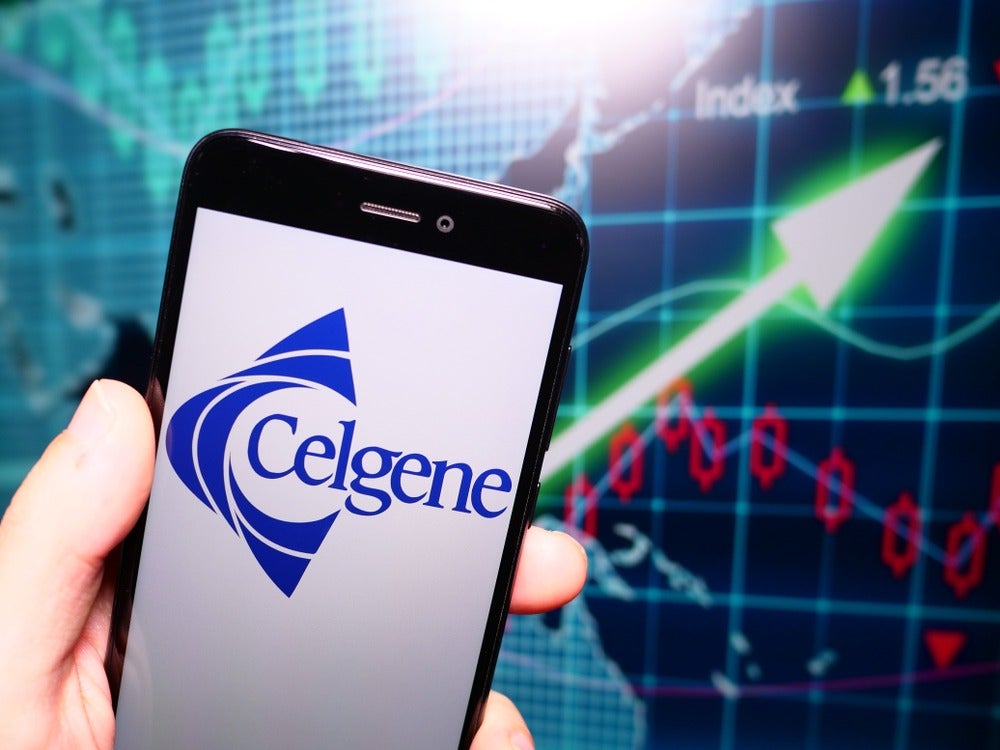Celgene, a US-based global biotech company, has entered into a $25 million three-year partnership with UK-based Exscientia, which specialises in using artificial intelligence (AI) to automate drug design.
Celgene exscientia collaboration
The deal will see Celgene identify milestones and royalty payments based on the success of the programme. Celgene said it plans to use AI to accelerate the discovery of small therapeutic drug candidates for three programmes in oncology and autoimmunity.
On average it takes 13 years to develop a drug from discovery stage through to market and it is estimated that it costs $2.6 billion for a pharmaceutical giant to develop a new drug – even despite the incredibly low success rates.
Therefore, biotechnology companies are turning to AI to increase overall R&D success and profitability, as well as accelerating the drug discovery processes.
Celgene hopes to tap into Exscientia’s expertise in the hope that it lives up to the company’s claim: that they can generate drug candidates in roughly one-quarter of the time of traditional approaches.
The AI partnership marks a continuation in Celgene’s investment spree, having recently acquired Juno Therapeutics for $9 billion and Impact Biomedicines for $7 billion.

US Tariffs are shifting - will you react or anticipate?
Don’t let policy changes catch you off guard. Stay proactive with real-time data and expert analysis.
By GlobalDataThe company’s increasingly acquisitive growth strategy reflects both the importance of outright size in the pharma market, as well as the significant role of diversification in the preparation towards upcoming patent cliffs.
Similarly, preparations are well underway for the proposed $74 billion mega-merger between Celgene and Bristol-Myers Squibb, with plans for a shareholder vote next month.
Doubts remain, however, with many of BMS’s key shareholders, including Wellington Management Co, the second-largest shareholder, voicing concerns over Celgene’s forthcoming loss of exclusivity of its blockbuster drug, Revlimid, in October 2019 (US) and 2022 (EU).
According to GlobalData’s Drug Sales and Consensus Forecast Database, the drug brought in almost $10 billion worth of sales last year, however, based on the database, the sales compound annual growth rate for 2018 – 2024 will drop to 6% – down from 33% from 2006 – 2018.
However, Celgene’s partnership with Exscientia, which may shorten the discovery and development timelines and aid the success of the development process, will favourably impact its ability to fill the loss from Revlimid.
The investment implies Celgene’s day–to–day business continues against the backdrop of controversy regarding the BMS merger. With several key shareholders publicly against the deal, Celgene clearly recognises the value of building competitive differentiation in an increasingly sophisticated yet aggressive market, by crafting an individual strategy, albeit arguably within a contingency, Plan-B, context.
The markets remain uncertain as to whether the deal will be passed with the current share price 25% below the offer price.
Partnership history
Exscientia’s partnership with Celgene will be its 5th major partnership secured since the company was founded in 2012. The company is already working with a number of major industry players.
In 2017, GSK completed a similar $43 billion partnership deal with Exscientia in order to use its AI technology to accelerate the discovery of new molecules against GSK targets.
This followed a hefty drug development partnership with Sanofi, worth $274 billion. Further key partnerships include a $68 billion deal with Roche and an $18 billion with Evotec.
As well as forming numerous partnerships, Exscientia is simultaneously developing its own drug discovery portfolio. Both these major partnerships, as well as Exscientia’s proprietary pipeline development involving this powerful new tool, highlight the extraordinary impact scientists believe AI can have on the industry.





